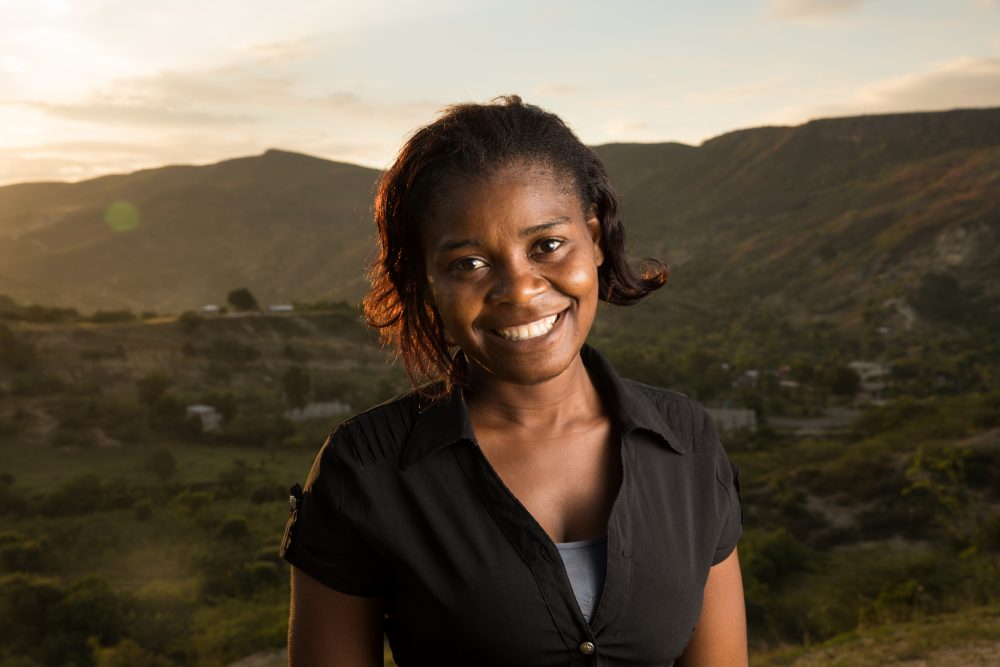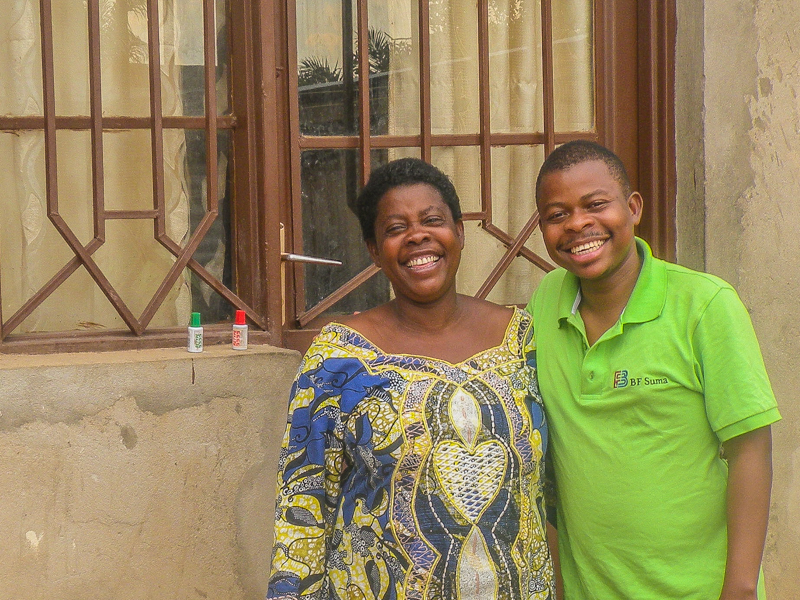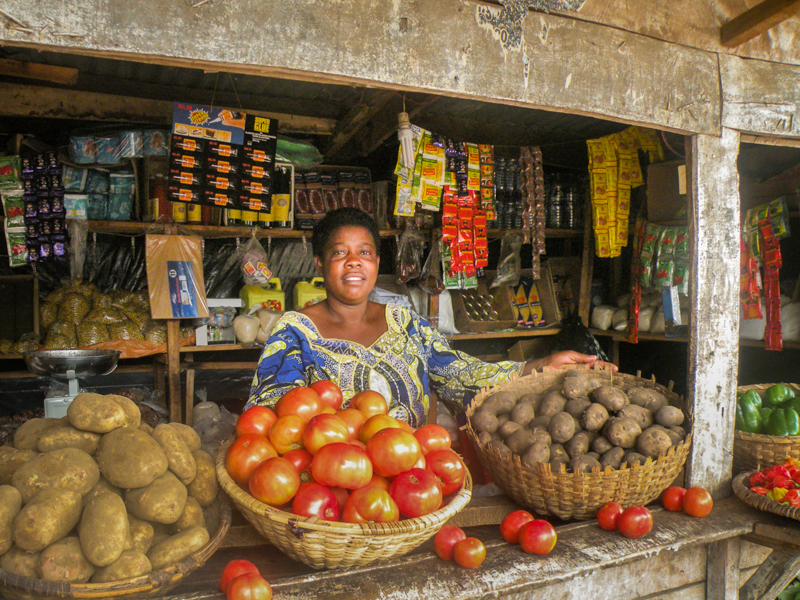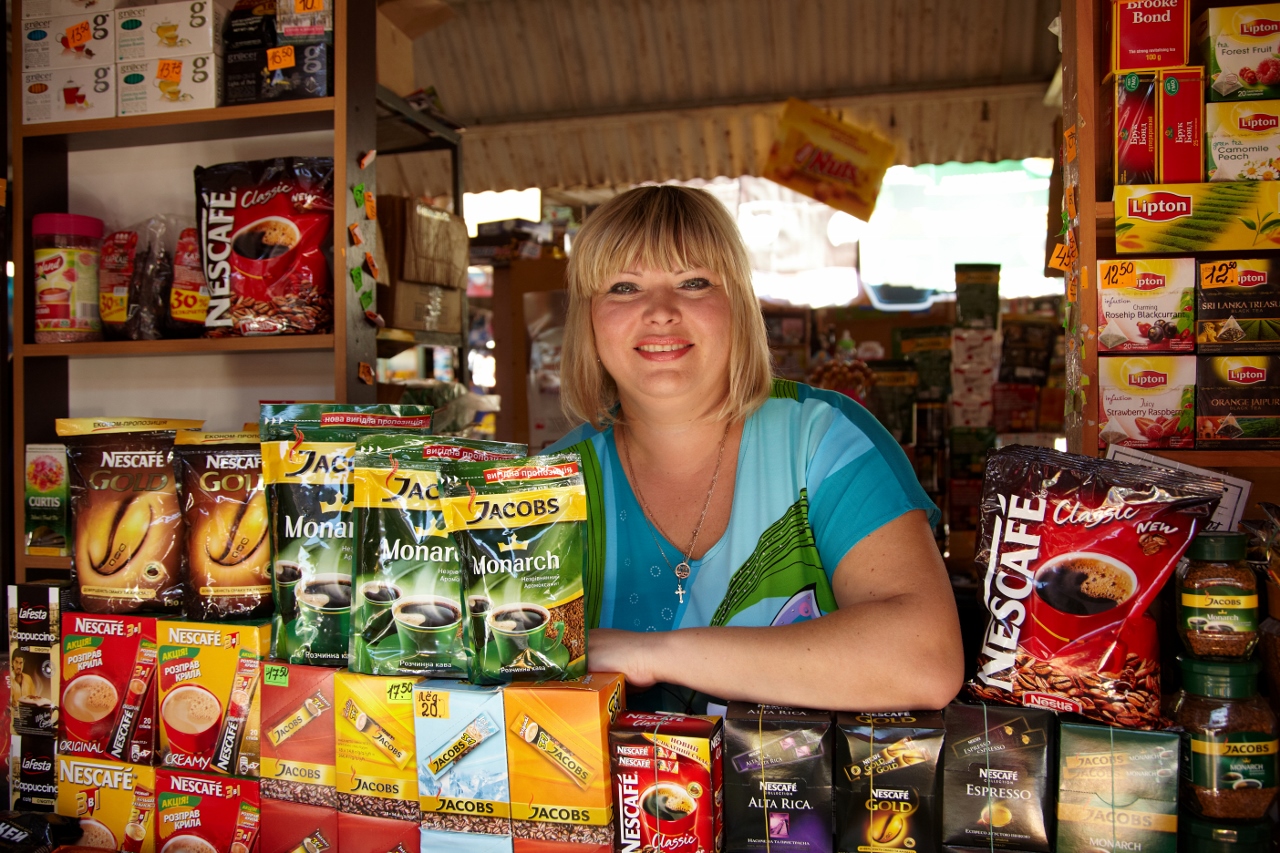As a retailer in a local market near Jeanthon II, Haiti, Manoucheka Joseph puts in a long day. At 6 a.m., she packs a black rolling suitcase with her wares—sandals, children’s clothing, and drinks—hails a taxi, and makes her way to the bustling market. She spends the day tending to her stall and helping customers find items, and doesn’t return home until 6 p.m.
Even though Manoucheka was involved with the church in her community, her busy days away from home kept her from getting to know her neighbors. “I didn’t have any friends,” she relates.
Manoucheka also worried about not having enough income to save for unexpected emergencies that might arise—not only for herself but for her 8-year-old son. “Life was difficult,” she recalls. “We earn 100 gourdes, and we spend 100 gourdes. We just live one day at a time, with no hope for the future. So, […] if there’s an emergency situation, how are we going to face it?”
Then, this past February, Manoucheka decided to join Gwoup Epay Debora, the Deborah Savings Group that had started at her church. Continue Reading…




















